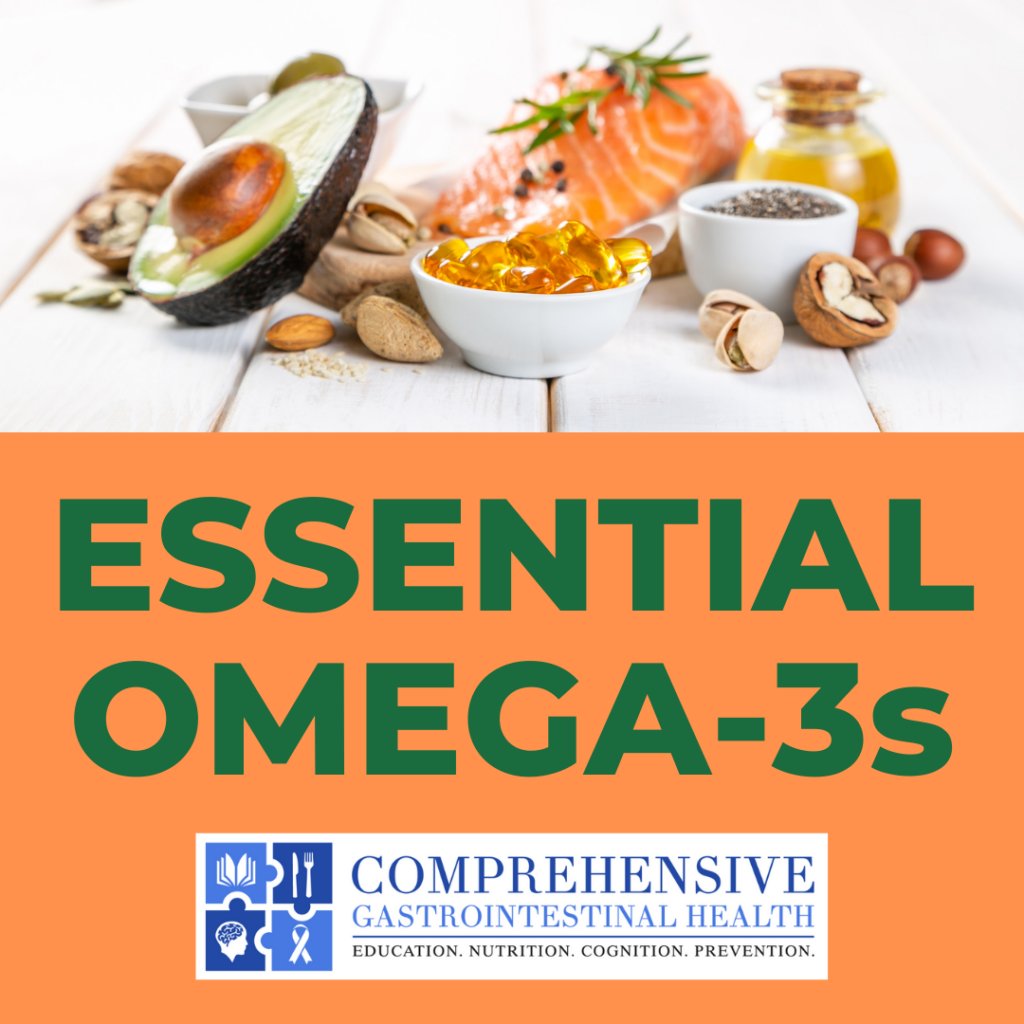ESSENTIAL OMEGA-3s
ESSENTIAL OMEGA-3s
by Julie Adams, RD
Here’s more incentive to include fish in your diet. A recent meta-analysis of 17 high-quality studies tracking over 40,000 participants has shown that marine-based omega-3 consumption was associated with a 15-17% lower risk of all-cause mortality. In other words, eating fatty fish rich in omega-3 fatty acids EPA and DHA can help you live a longer, healthier life.Essential
Omega 3 Fatty Acids
Every cellular membrane in the body relies on fatty acids. Omega-3s EPA and DHA play an important role in gut, brain, eye, heart, metabolic, immune and mental health. They are important to maintaining the fluidity of our membranes and provide cardiovascular benefits by preventing blood platelets from sticking together. Fatty acids are “essential” because our bodies cannot manufacture them on their own, so we must get them from food. The best source of omega-3 fatty acids, eicosapentaenoic acid (EPA) and docosahexaenoic acid (DHA) are found in fatty fish like salmon, mackerel, herring, sardines and tuna.
Omega-3s and Gut Health
Research is ongoing, but several adult studies indicate that omega-3 fatty acids promote the production of anti-inflammatory short-chain-fatty acids known to foster the “good” microbiota in the colon. Since gut microbes are important to many aspects of human health, including immune, metabolic and neurobehavioral functions, it’s a great idea to feed them well!
How much Omega-3 Fatty Acid Do I Need?
Adequate intake of omega-3 fatty acids is 1.6 grams for adult males and 1.1 grams or adult females. The American Heart Association interprets this recommendation for patients who do not have a history of heart disease as eating at least 2 servings of fish each week (a total of 6-8 ounces) from a variety of fatty, cold-water fish.
Omega-3’s in Supplements If fish isn’t your favorite meal, you might consider a quality omega-3 fatty acid supplement. Keep in mind that omega-3 supplements such as fish oil have the potential to interact with medications, such as anticoagulants. It’s important to discuss the possible interactions with your healthcare provider. The average fish oil supplement delivers about 1,000 mg fish oil, containing 180 mg EPA and 120 mg DHA.
Omega-3’s in Plants
Another Omega- 3 fatty acids, alpha-linolenic-acid (ALA), is present in some plant-based foods such as chia seeds, flaxseeds, flaxseed oil, walnuts, canola oil, soybeans, soybean oil, and green leafy vegetables. Some cereals, pasta, dairy, eggs are also fortified with omega-3 fatty acids. Plant-derived omega 3’s, though beneficial, are not as bioavailable and effective as those derived from eating fish.
Interested in reading more? You can access the study here:
For more tips on improving your diet, contact our office today at 224-407-4400 or at www.compgihealth.com to meet with one of our trained registered dietitians.

